- Home
- Jeannie Wycherley
Crone Page 3
Crone Read online
Page 3
She had become adept at finding easy victims over the centuries. That was the reason she had sought out Margaret. Elderly people were always a good bet. They were on borrowed time anyway, so people expected them to die suddenly. Four or five like Margaret allowed Aefre the time she needed to build her strength so that she could take on the Guardians and gain access to the portal. She wanted to track down her sisters. There was strength in numbers. If they could join forces, there was nothing they couldn’t do. No end to the fun and games. They could wipe out whole communities. Lay waste to towns. She wanted her sisters to join her. She intended to find a way.
*
I paused in the midst of my supermarket shopping to have a quick flick through the newspapers. Today the local newspaper the Cromleigh Chronicle had caught my eye, and I turned a few pages, wondering if there was anything new about Mikey. Instead, I noticed another article of interest, smaller and tucked away on the bottom of page five.
“GP’s Concern for Elderly Cromleigh Residents” ran the headline. A local GP was raising an alarm about the unexplained deaths of seven local pensioners over the past three weeks. Apparently these patients had been fit and healthy, and while it was not unnatural for the elderly to pass away suddenly, the GP pointed out that it was standard procedure to request post-mortems be carried out where the deceased had died alone and without warning. The hospital in Exeter had found itself a little inundated. I recognised one of the names. Margaret Hannaford, had been my neighbour while I was growing up, and I felt a regretful pang at her passing.
Poor Margaret. She had been a sweet lady, who doted on her daughter and her grandchildren.
As I tucked the paper into the trolley and moved on, the hairs on the back of my neck prickled. The feeling emanated somewhere between my shoulders and travelled to the top of my skull. Somebody was watching me. I spun around. No-one was looking my way.
Maybe I was imagining it, but the feeling came again several minutes later and while I scolded myself for being paranoid, I couldn’t shake the feeling off, I remained uneasy for the rest of the afternoon.
THREE
Claire
It was a word that Claire was fond of. Extraordinary. She liked the fact that it had all those syllables. Ex tra ord in air ee. She kept saying the word in her head over and over as the others talked. She perched on a stool by the Aga in her kitchen listening to the half a dozen other women and several men who were grouped around the large wooden table. Claire periodically rose to quietly fill cups and glasses with her hot and spicy ginger and lemon cordial. Perfect in this cold weather. Candles sputtered at various points throughout the room, shadows flickering against the walls.
Outside the wind was ferocious and the rain was beating down on the thatched cottage so hard that torrents of water poured from the roof and pooled on the path outside. If this kept up, the run-off from Pitcher’s Field would flood the road, causing misery for travellers on the road to Elbury.
Although why anyone would want to travel to Elbury in the early hours of a miserable day in February, Claire had no idea.
The people grouped around the table had come from far and wide but they were a hardy lot who wouldn’t let poor weather stand in their way. They varied in age, with Claire as the youngest, to a very wizened centenarian, Mercy Greengrass, who had travelled from Somerset, only thirty or so miles away.
Mercy listened calmly as Claire’s mother, Dorothea, explained the recent disturbances in Abbotts Cromleigh. She spoke of the deaths of Mike, Margaret Hannaford, and eight other elderly or infirm residents from within the local community.
Solange Pendennis pursed her lips. “We can’t know for sure that Aefre walks. She was awake so recently… when was it? Just three years ago?”
“She is walking,” Dorothea argued firmly. “And feeding. We have sensed her movement. And what’s more she’s already building her strength. Remember, three years ago she was extremely aggressive but fairly weak. We moved swiftly then to banish her from her hunting grounds. We nipped it in the bud, and we need to do that again. Quickly.”
“We must find a permanent solution. It simply isn’t wise to keep chasing her back to her hide in the forest. This has all been going on for too long.” Mercy was grave, and Solange nodded in agreement.
Dorothea sighed. “But these days we cannot even call together a full meeting of the Guardians. We are becoming weaker. There seems so little we can do to counteract Aefre.”
“Our numbers are diminishing, there’s no denying that. You made a wise decision to call an extraordinary meeting, but not everyone could attend at short notice.” Mercy settled back in her seat and smoothed out her long dark skirts.
There was that word again, thought Claire. Extraordinary.
Like her mother, Claire recognised the danger. She had sensed the power of Aefre’s evil as it hovered near the cottage. Even working together Claire and Dorothea struggled alone against Aefre’s force; the emaciated fingers of which invaded warmth and happiness where they found it, while she sucked the love and light out of everything.
Three years ago the combined wisdom of the Guardians had managed to put a quick stop to Aefre’s murdering spree and she had returned to her miserable dwelling to sleep. They had hoped she would hide for longer, but she had already returned—and she was hungry. This was a testament to her growing strength and their weakening powers. The Guardian’s enchantments were no longer binding Aefre to the earth for long enough.
“What if …” Claire started but stopped. Was it her place as the most junior member of the Guardians to speak? Mercy’s dark eyes glittered, and she cocked her head at Claire. Her benign look appeared encouraging.
“What if Aefre becomes powerful enough to take us on?” Claire asked.
Mercy nodded. “It’s a likely proposition.”
“We have to ensure that doesn’t happen,” said Dorothea firmly. Claire realised that Dorothea was as fearful as Claire was, after all, her family was the most vulnerable of all, here in the cottage, so close to the Sentinel.
“It is going to happen, however, and sooner than we would like.” Mercy was direct.
“It feels different this time,” said Claire, and Dorothea agreed.
“She is different. Stronger. Perhaps because we are weaker, perhaps because she has a great purpose.” Mercy looked thoughtful. “We have to consider what we can do without instigating a battle with Aefre or putting ourselves in jeopardy.” To Dorothea she said, “You need to monitor her closely—but without antagonising her—and keep us informed of her movements.”
“And the town? And the Sentinel? How do Claire and I protect those?”
“You’re not alone, Dorothea, never alone. Someone will come.” Mercy stared through the window into the darkness beyond as though she could see someone out there. “Someone … a stranger … will come. One who is known to you but not known by you … she will come and she will help us.” Rose nodded and smiled. Mercy gathered her dark cloak around herself and gestured at the assembled Guardians, her bony hand graceful, the skin as smooth as it had ever been. “We are all here for you.”
Dorothea nodded. “Very well. Blessed be.” Claire set about blowing the candles out as the group dispersed through the darkness.
*
Aefre retreated further into the hedgerow, in the pouring rain some distance from the cottage, far enough away so that no-one would spot her. Even so she had seen Mercy Greengrass pointedly glare in her direction. That enfeebled bitch had bat-like senses. Mercy reached out for her, and Aefre mentally slapped her away; impatient, annoyed. The Sentinel was protected, wrapped up tightly in a mystical charm of the Guardians’ making and she couldn’t break it yet but one day she would unlock it, and when she did her wrath would fall like fire from the sky.
Four
The eye
Late Spring
I drove out of Abbots Cromleigh and turned on to Elbury Road with trepidation. Just three weeks previously, a group of five young people had lost their lives at exactly the same spot on the road as Max and James. I wanted to pay my respects, but also to ease my own fresh pain. Old wounds had been reopened by the media coverage of the accident: the harrowing images of the tangled metal being shipped away on the back of a truck; the tearful parents, siblings, and partners of the young people at the crash scene; and coverage of the funerals.
A carpet of once colourful flowers, now in varying states of decay, stretched out from the tree like a bride’s train. Bouquets and soft toys were tied to branches with ribbons, and cards were tacked or stapled all over the trunk. I carefully removed two cards so that Max’s plaque was visible once more, then I took a handkerchief from my pocket to wipe its surface clean.
I tried hard not to process what I could see—fresh, clean scars in the bark—but of course I knew what they meant and I shuddered. All around me the ground was churned up. The car had been travelling at some speed down into the dip and had hit the tree without braking. The two women in the back had been thrown through the windscreen, suffering horrific non-survivable head injuries. The driver and front seat passenger had both died on impact, and another lad who had been sitting between the girls had succumbed to his injuries later in hospital.
I slumped in sadness. The tree, heavy with new foliage, also drooped in sorrow. Cards attached to bunches of flowers flapped idly in the breeze, the messages, lovingly written, were already beginning to fade in the sunlight. There was a deep stillness all around, and for a moment I was lost in melancholic reverie.
The flapping of a bird overhead startled me. Looking up I could see a number of crows perched on branches glaring at me with beady, black eyes. I frowned up at them.
One of them had a tight grip of something in its beak. I wondered what it could be. The bird kept flappi
ng around on a branch, causing a kerfuffle among the others. Suddenly all the birds started squawking and cawing at each other. The noise was loud in the stillness of the warm and sunny afternoon, and I grew alarmed. The bird with the item opened its beak and dropped it. I watched whatever it was tumble towards me, seemingly in slow motion, the sun reflected from it, causing it to sparkle as it fell. It landed on the ground beneath my feet. I peered down, searching the carpet of flowers around me.
Kneeling among them, I explored gently with my hands for whatever had dropped. It couldn’t have gone far and hadn’t sounded like it had bounced away. I tenderly parted stalks and petals, careful not to damage the tributes, searching for the item with my fingertips. My left hand found something. I curled my fingers around it and drew it out from between some slightly browning chrysanthemum blooms.
I was unable to comprehend what it was at first. I stared at it for a second or two before I realised, and then with a shriek, I threw it away, hard, towards the hedgerow. It was an eyeball. I scuttled backwards, away from it, scattering flowers as I went, before losing my balance and sprawling sideways. The eyeball hit the leaves and dropped to the ground, rolling back towards me before coming to rest, looking up at the tree. It was blue. The sun shone on it, the cornea sparkled, and for a second it appeared to slightly swivel to look my way. I cried out and rolled to my feet, feeling a sharp pain in my hand as I put my weight down to push myself up.
I moved away, into the centre of the road, staring at the eye in disbelief. Where the hell had that come from? Surely it wasn’t from the accident? It was too fresh. I imagined a possible scenario, the devastating injuries, particularly of the girls who had punched through the glass with their faces. Then I thought of Max …
My knees gave way. I squatted in the road and raised shaking hands to my face. A crimson river ran down my left hand and wrist. Blood dripped onto my jeans and the ground below. The palm of my hand had been gashed quite deeply on a sharp object hidden among the flowers. The wound gaped. It would need stitches; there was no doubt about that.
I breathed deeply and stood, feeling disoriented, but needing to get back to my car.
Somewhere, a woman laughed long and shrill. Mocking me. It was an ugly sound.
Startled, dizzy, nauseous, I turned about. Who was it?
“Who’s there?”
Silence. The blood dripped between my fingers. I needed to wrap the wound and get to a hospital, assuming I could drive, but I had dropped my handkerchief at the base of the tree. I didn’t want to go back and retrieve it. I didn’t want to see that eye again.
The blood flowed, spattering on the road in front of me. I lifted my left hand up, supporting it with my right. There was no way I would be able to drive like this. I needed help. The only answer was the cottage across the road, and with relief I saw the young woman who lived there standing at the gate watching me. Her head was tilted upward and she appeared to be scenting, the way Pip did when I took him out walking and there were rabbits in the vicinity.
“Excuse me,” I said, my voice shaking. I raised my bleeding hand.
The woman grimaced and nodded, then held the gate open. I walked through, down a few steps towards the patio area. The cottage’s lamps swung in the warm breeze and the smell of herbs greeted me. There were pots and tubs of all shapes and sizes, full of plants I didn’t know the names of.
“Come through,” she said briskly.
“I’m so sorry to be a nuisance,” I began, but the woman shook her head. I followed her into the cottage.
“Please don’t worry,” she said and led through me to the kitchen and an old-fashioned porcelain sink. She ran the tap. I tentatively put my hand into the stream of water. It was cool but not too cold. I watched bright blossoms of blood turn the sink red before the water rinsed them away, becoming rosy pink as it did so. My hand steadily dripped, the flow unceasing. “Stay there,” the woman said, “I’ll only be a moment.”
She went into a room at the back of the kitchen, a pantry maybe. Bottles clinked before she returned to check on the wound. “It’s going to need stitches,” I said. “If we could just clean it up and then perhaps bind it, even with kitchen roll, I can get back to my car and drive to the hospital.”
The woman shook her head. “You won’t need stitches, my pet. Don’t worry.” She smiled before disappearing into her pantry again. I pondered on her calling me her ‘pet’. It was a strangely old fashioned expression, and she was younger than me. The gentle thudding and scraping noise of a pestle and mortar drifted my way. Such a familiar sound. Once I had made curries and blended my own spices. Max had loved my curries. I didn’t make them anymore.
After a few minutes, the woman reappeared clutching a small clay bowl containing a thick green paste. She took my hand and carefully dried it on a muslin cloth. It wept and bled, and she dabbed it carefully until the edges of the wound were as dry as she could possibly make them. She smeared the paste neatly over the wound, until it began to act like a plug. The bleeding was contained.
“Sit.” She motioned to a wooden chair at the table, and I sat gratefully. The woman set a large iron kettle to boil on her Aga and pulled a bright yellow teapot down from a shelf.
“You look pale,” she said softly.
“I’m ok. I feel a bit shaken, that’s all,” I replied. My knees were still wobbly. I badly wanted to lie down.
“You’ll be fine. You’re strong.”
I studied her properly then. She was somewhere in her early thirties, but her curly brown hair was greying at the temples and she had made no effort to dye it. She had a few crow’s feet around her eyes, but otherwise her face was unblemished and unlined. She wasn’t beautiful, but she wasn’t plain either. Her eyes were as grey as a November sky over Elbury. I took in her clothes. She wore a simple dress, with a three quarter length skirt and a pair of clogs. It was at once effortless, draped casually over a slender form, and somehow timeless.
She smiled, perhaps at my obvious curiosity, before turning her attention to the teapot. She served up a cup of hot sweet liquid that was the precise same yellow as the teapot; it may have been tea, it may not. It warmed me through and calmed me too. After a few minutes the shaking stopped, and I began to relax a little.
“Now,” the woman said. “I’ve seen you before.”
“Yes.” That was likely, after all I recognised her.
“Your son was killed in an accident out there?”
I nodded curtly, not wanting to talk about Max.
“Not this time,” the woman said referring to the recent car crash practically outside her front door, “but the time before.” It was a statement not a question. “I’ve seen you here, often.”
I nodded again. My eyes filled with tears, and I impatiently willed them away. No-one had time for my grief and self-indulgence anymore. I kept myself to myself, cocooned in my bubble of loneliness and sorrow.
“You miss him.” The woman sounded sad. Absurd. Of course I did. I sniffed back my tears. With a huge effort of will, I changed the subject.
“I’m Heather.”
The woman hesitated. “Claire,” she said eventually, seemingly reluctant to offer more.
“Thank you for helping me out today.”
“I knew you were coming.”
I regarded her in surprise. “What do you mean?”
Claire only shrugged and poured more tea. She urged me to drink again. “What did you see out there?”
“Pardon?”
“You saw something. It scared you.” She studied me intently, searching my face.
I swallowed, the memory returning, “I saw …” The bile rose in my stomach.
“You saw?”
“I saw an eyeball.”
“Yes.” Claire was solemn, but neither surprised nor horrified. She wasn’t aghast in the same way I was. Assuming it was a human eye, why had the emergency services not cleared the scene properly?

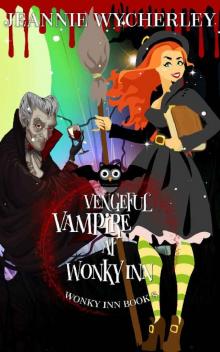 Vengeful Vampire at Wonky Inn: Wonky Inn Book 8
Vengeful Vampire at Wonky Inn: Wonky Inn Book 8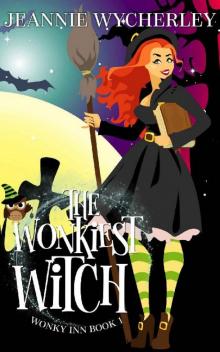 The Wonkiest Witch
The Wonkiest Witch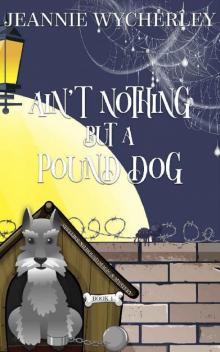 Ain't Nothing but a Pound Dog
Ain't Nothing but a Pound Dog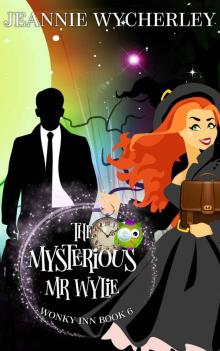 The Mysterious Mr Wylie: Wonky Inn Book 6
The Mysterious Mr Wylie: Wonky Inn Book 6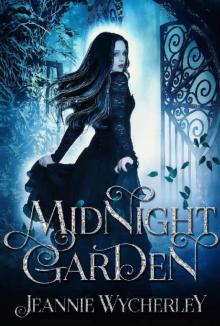 Midnight Garden
Midnight Garden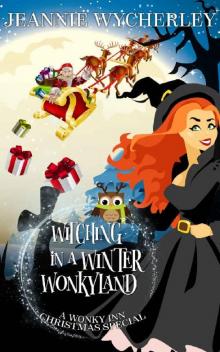 Witching in a Winter Wonkyland: A Wonky Inn Christmas Cozy Mystery
Witching in a Winter Wonkyland: A Wonky Inn Christmas Cozy Mystery The Great Witchy Cake-Off
The Great Witchy Cake-Off The Great Witchy Cake Off: Wonky Inn Book 7
The Great Witchy Cake Off: Wonky Inn Book 7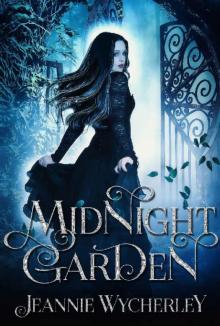 Midnight Garden (The Extra Ordinary World Novella Series Book 1)
Midnight Garden (The Extra Ordinary World Novella Series Book 1)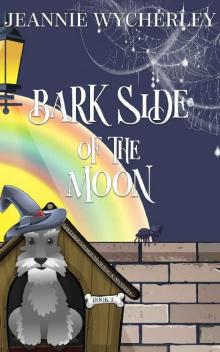 Bark Side of the Moon: A Paranormal Animal Cozy Mystery (Spellbound Hound Magic and Mystery Book 3)
Bark Side of the Moon: A Paranormal Animal Cozy Mystery (Spellbound Hound Magic and Mystery Book 3) A Gaggle of Ghastly Grandmamas: Wonky Inn Book 9
A Gaggle of Ghastly Grandmamas: Wonky Inn Book 9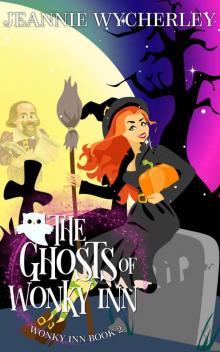 The Ghosts of Wonky Inn: Wonky Inn Book 2
The Ghosts of Wonky Inn: Wonky Inn Book 2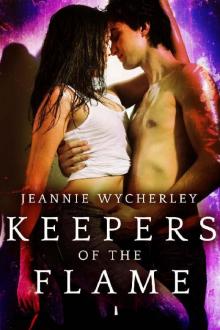 Keepers of the Flame: A love story
Keepers of the Flame: A love story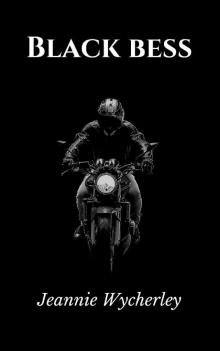 Black Bess
Black Bess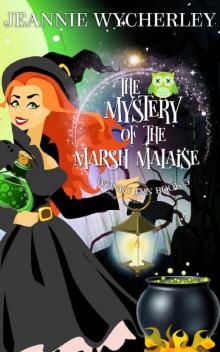 The Mystery of the Marsh Malaise: Wonky Inn Book 5
The Mystery of the Marsh Malaise: Wonky Inn Book 5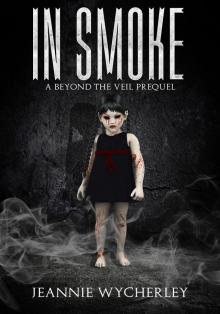 In Smoke eBook ready
In Smoke eBook ready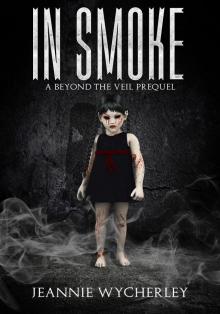 In Smoke
In Smoke